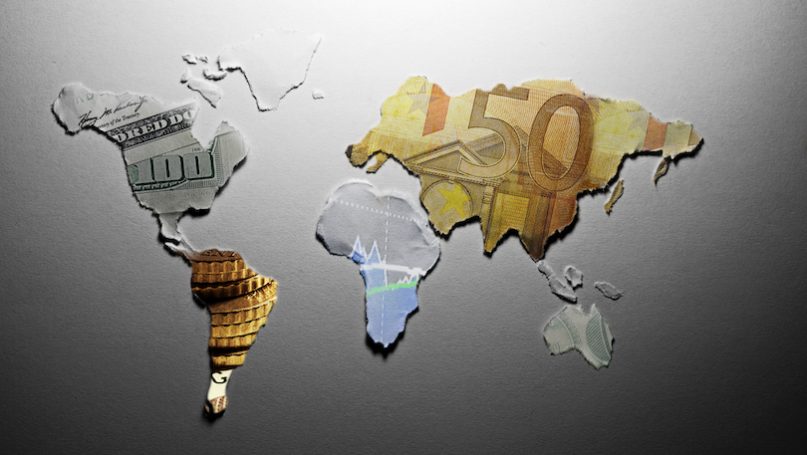
This feature is part of the online resources to accompany the textbook Foundations of International Relations.
International Political Economy (IPE) studies the reciprocal relationship between politics and economics in the global system. Acknowledging the economic foundations of global order, it proposes a fusion of economic and political analysis to form a holistic approach examining the global system that both complements and transcends the family of theories explored in Part one of this book – whilst also recognising some of the global structures that reach throughout this part of the book. It explores a set of guiding questions that arise from areas such as trade, production and finance and their interaction with political pressures identified in richer and poorer states, in the strategies of transnational corporations, and in international organisations. Awareness of International Political Economy is central for students of International Relations as it shows the divisions in the discipline about how our global system might progress, and highlights whether who gets what can (or should) fundamentally change.
International Political Economy theories suggest different answers to the question of meaningful system change that would influence who gets what, when and how. They build on some of the insights and the familial frameworks of the various IR theories by linking political actors across states to international economic relations. The latter, economic relations, builds around markets as the location where trading occurs on the bases of demand and supply. Individual households and productive organisations meet as buyers and sellers, exchanging goods and services at agreed prices. For market participants, such as private enterprises or the people who sell their labour for wages, the direction in which the global system should be changed (if at all) is a matter of contestation.
A tension between global governance and deglobalisation unsettles any neat distinction between small-scale attempts at problem-solving and more ambitious, transformative, reform efforts. Global problems in need of purposeful system change – such as economic development, power rivalry and labour migration – will be tackled much more convincingly if we manage to keep alive the dialogue between competing viewpoints.
Text adapted from Günter Walzenbach. 2022. ‘International Political Economy’ in McGlinchey, Stephen. Foundations of International Relations. London: Bloomsbury.
Below is a collection of multimedia resources that help unpack, and explain the importance of International Political Economy.
General overviews
Academic debates and discussions